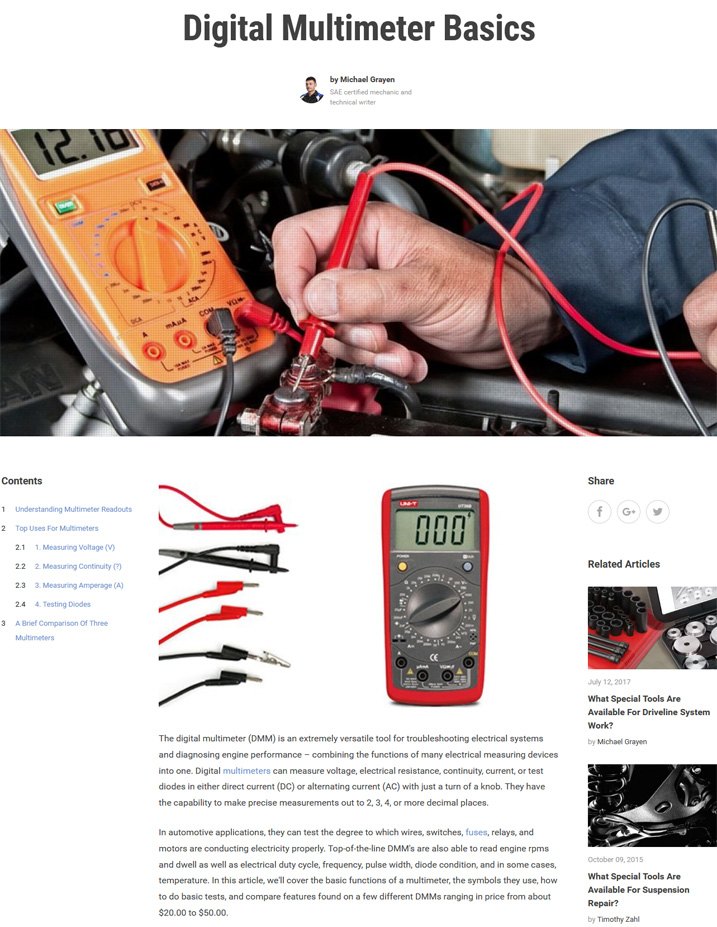When it comes to any automotive electrical work, things usually begin with the testing of circuits - probing connections and wires to verify whether electricity is passing through them or not. Testing at different points helps you determine where electricity flows or stops, and how stable or unstable the quality of that flow is. And sometimes, you need to crank the engine while conducting such tests - not an easy thing to do on your own, unless you have the appropriate tools.
In this article, we'll look at just two types of inexpensive tools we've found to be most helpful whenever electrical testing is being done: test lights, and remote starter switches. But be sure to also check out the wide variety of electronic testers and diagnostic equipment we have within our Automotive Tools section.
Test Lights
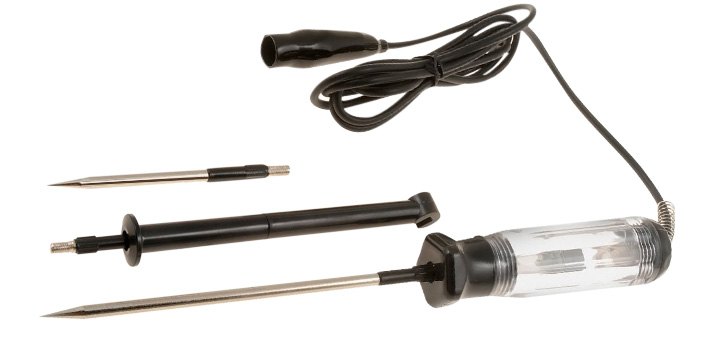
Test lights (also known as "circuit testers") typically consist of a probe, a fuse, a small light, and a clamp for establishing a ground connection. Some test lights may feature two separate probes in lieu of a clamp for establishing a negative ground connection. In the event of a short, the fuse will blow to prevent excessive levels of current flow.
When the positive probe touches a source of electrical power, the light will illuminate to confirm the source actually has live current flowing through it. An "open" condition with no electrical flow will result in a light that doesn't come on.
For best value, we've got simple basic test lights from Dorman, Apex, Draw-Tite and Actron. Dorman's Circuit Tester features 3 interchangeable tips for ease of use.
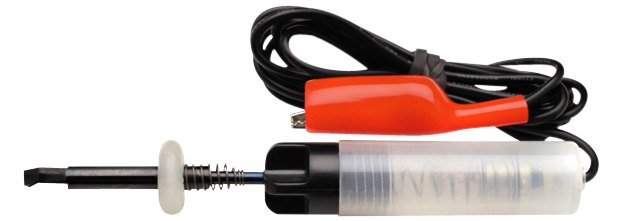
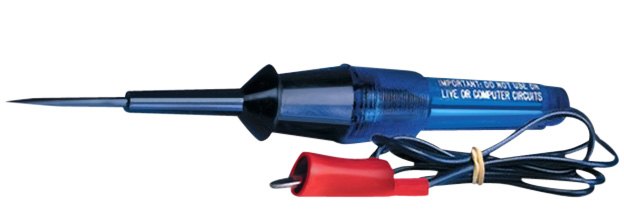
If you'll be using your tester on sensitive automotive electronic computers that operate with only a small amount of current, we've got specially designed testers that detect low amounts of electricity. There's the Lisle Computer Safe Circuit Tester, CTA Computer-Safe Auto Logic Probe, and Install Bay Computer Safe Circuit Tester.

The Wilmar 4-Piece Electrical Test Kit includes multiple test lights with extra lead contacts. And for the person that appreciates the ultimate, the OTC 14-Piece Terminal Test Adapter Kit features a wealth of adapters for testing virtually any shape of electrical connection.
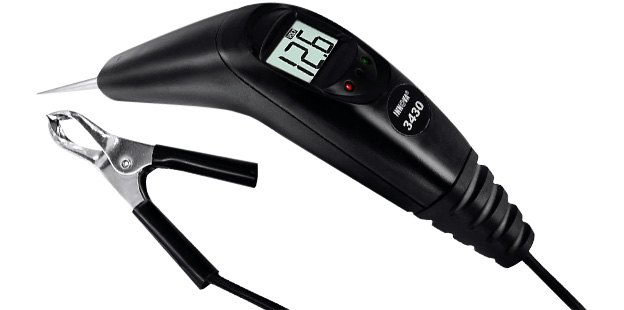
The OEM Tools Circuit Tester with LCD, Cal-Van Tools LCD Test Light, Associated Equipment Digital Voltmeter, and Innova Digital Test Light offer the distinction of a precise digital readout for voltage detected within a general range of 5-30 volts.
If you'll be working on a hybrid vehicle, you need a test light that can handle 42-volt electrical systems those cars operate on. For this, there's the CTA 12/42V Circuit Tester and S&G Tool Aid Circuit Tester.
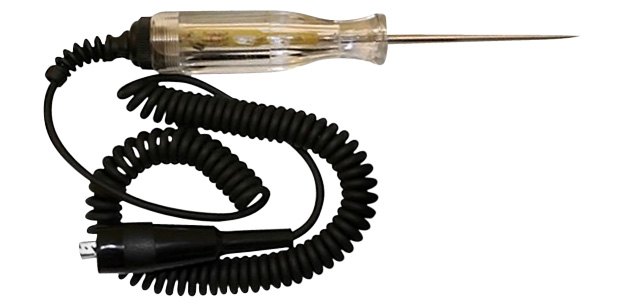
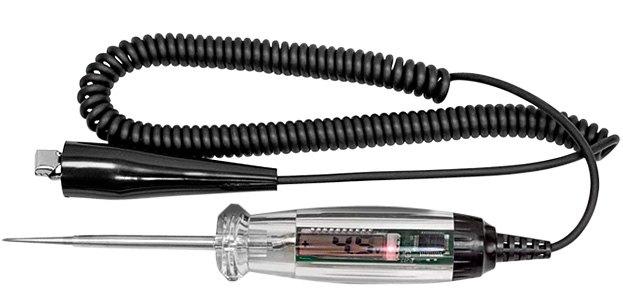
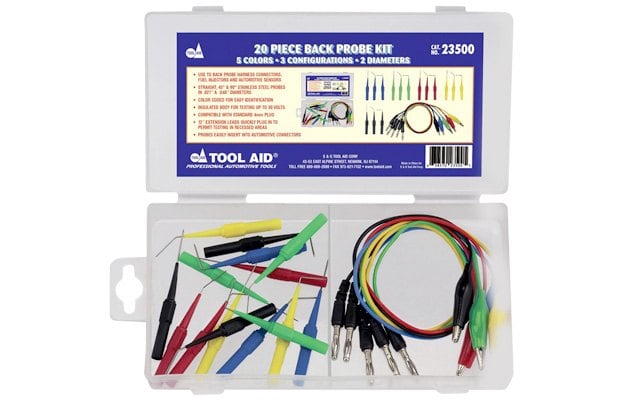
We've got the S&G Tool Aid 20 pc. Back Tester Kit which contains a variety of metal probe ends that range in size from narrow pinpoints to thicker diameters. This allows quick and easy insertion into a range of automotive electrical connectors of all sizes.
Remote Starter Switches
Remote start switches (also known as "bump switches") provide a safe and easy way to start (or just crank) your engine when you're working on an electrical system. They feature a switch and 2 alligator clips. One clip is connected to the vehicle's starter motor, and the other to the battery. In addition to electrical diagnosis, these make cylinder compression tests and valve spring adjustments easy, and they allow you to "bump" pistons to the exact top dead center position.
We've got remote starter switches from Lisle, Proform, and Powerbuilt.
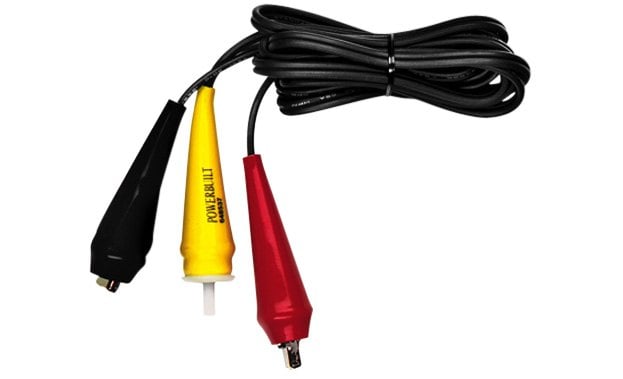
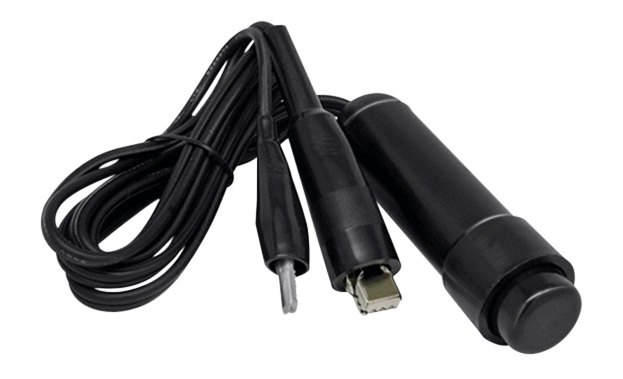
For diving further into measuring quantifiable amounts of voltage, electrical resistance, continuity, or current, we recommend a multimeter. Our related article Digital Multimeter Basics elaborates on their use and benefits.
When you've got the above referenced items in your tool box, you'll save a lot of time and effort during electrical testing, diagnosis, and repairs. And there's nothing like having the right tool, on hand, at the right time!
